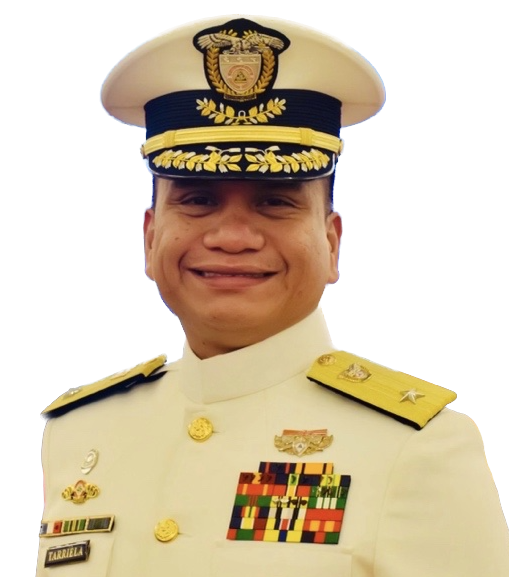 Jay Tarriela
Jay Tarriela
Commodore of the Philippine Coast Guard
Maritime Safety and Security Policy Program (M.A.’16)
GRIPS Global Governance Program (G-cube) (Ph.D.’21)
Please tell us about your your career path so far.
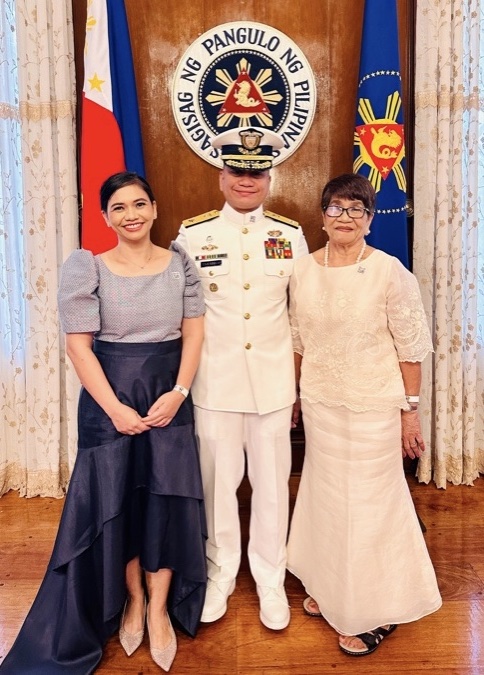
At the Oath-taking Ceremony at the Malacañang
Palace with President Marco
I joined the Philippine Coast Guard (PCG) in 2005 as a commissioned officer with the rank of CG Ensign. My line of specialization then is primarily focused on human resource management since it was my first unit assignment. However, after completing my junior billet aboard a ship and being assigned to different Coast Guard stations, I realized the importance of education in understanding maritime governance, particularly the intricacies of the PCG's mandates. Luckily enough, I was selected to join the inaugural class of the GRIPS Maritime Safety and Security Program in 2015. This master's program made me crave more for higher learning, so I applied for the GRIPS Global Governance Program (G-cube). After I completed my Ph.D., I reported back to the PCG. At present, I hold three positions: the Deputy Chief of Coast Guard Staff for Human Resource Management (CG-1), the Adviser of the Commandant of Maritime Security, and the PCG Spokesperson on the West Philippine Sea.
You have recently been promoted to the rank of Commodore of the Philippine Coast
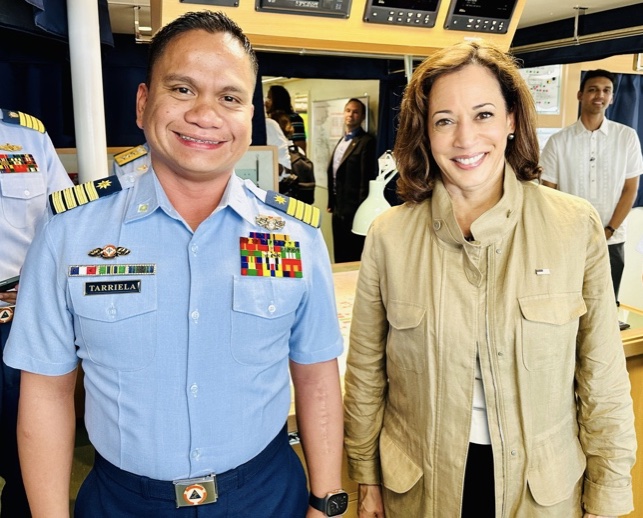
Briefing VPOTUS on what is happening in the South China Sea aboard MR
RV-9701
Guard (PCG). Congratulations! Please tell us about your main roles and responsibilities?
Although I was newly promoted to the rank of Coast Guard Commodore, I still hold the same positions. My three current designations are intended for senior ranking officers. However, my designation as Adviser of the Commandant for Maritime Security is the most challenging responsibility because it relates to our country's national security, particularly in the South China Sea. Such a role is not just focused on the operational concerns in the West Philippine Sea, it also covers our international engagements with other countries, like Japan, the United States, and even China.
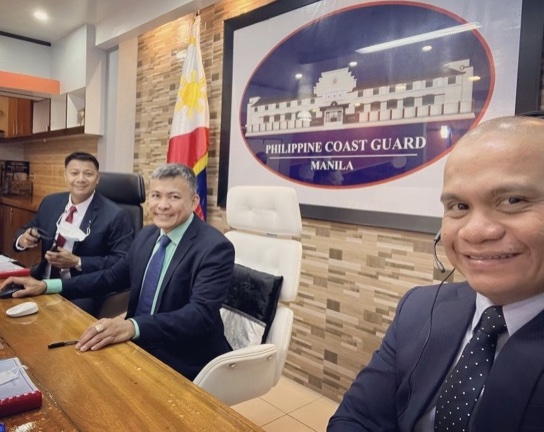
16th Regional Cooperation Agreement
on Combating Piracy and Armed Rob
bery against Ships in Asia Inform
ation Sharing Centre (ReCAAP ISC)
ISC Governing Council hybrid
meeting
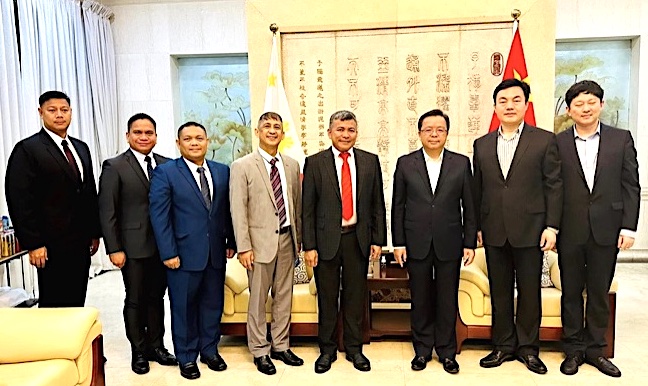
PCG visiting the Chinese Ambassador’s residence
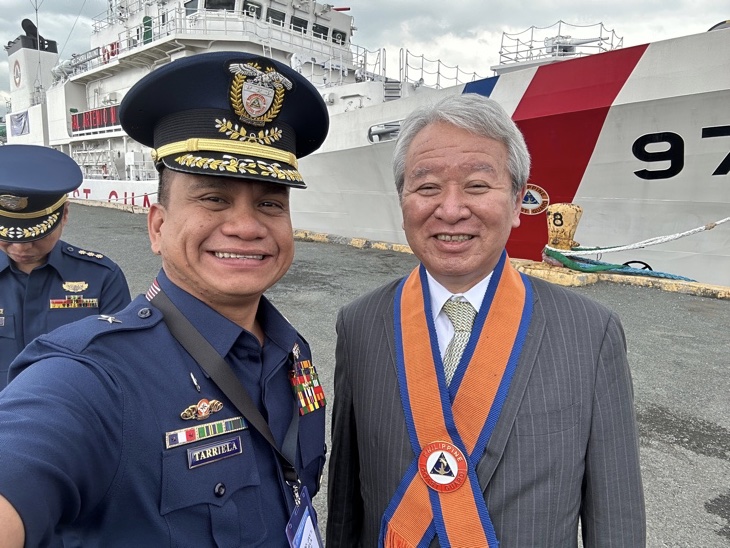
Visit of the former GRIPS President and now the Japan Interna
tional Cooperation Agency (JICA) President, Prof. Akihiko Tan
aka to PCG.
What are some of the biggest challenges you face in your work? And what have been the most interesting or rewarding aspects of your career thus far?
The biggest challenge with my work is to come up with sound advice on the strategic deployment of PCG vessels considering that we have a minimal number of assets. But what makes it rewarding is the PCG can still be able to at least perform its mandates in those critical situations that would require the presence of PCG ships. It was a fulfilling experience knowing that I made the correct recommendation in prioritizing where the vessel should be deployed.
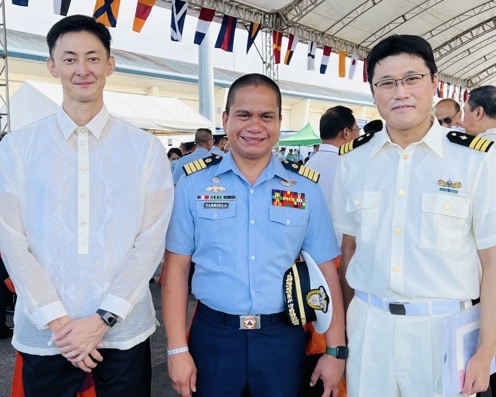
GRIPS classmates JCG Commanders Hiroaki Honodera and Nat
suki Yonezawa attending the PCG Anniversary in Manila
What led you to GRIPS? What is the most important thing you got out of your studies, and how has your experience at GRIPS prepared you for future endeavors?
I entered GRIPS because of the Japan International Cooperation Agency’s Maritime Safety and Security Program (MSP). My experience at GRIPS compelled me to continue pursuing my Ph.D., under the GRIPS Global Governance (G-cube) Program. My master's and Ph.D. degrees from GRIPS have allowed me to gain a better understanding of the maritime security environment in the region. Not just its theoretical underpinning but even through the network I created during my studies.
Have you had any involvement, professional or otherwise, with Japan since your graduation?
Since the Japanese government has been a critical supporter of PCG modernization and capability development, I am always in touch with JICA and the Embassy of Japan here in Manila. I also had a chance to join the Commandant's visit to Tokyo, Japan, last year, where he had a bilateral meeting with the JCG Commandant. He also paid a courtesy visit to the JICA Headquarters. Interestingly, I also hang out with my two Japanese classmates during my MSP who are currently deployed here in the Philippines as Japan Coast Guard attaché and JICA expert respectively.
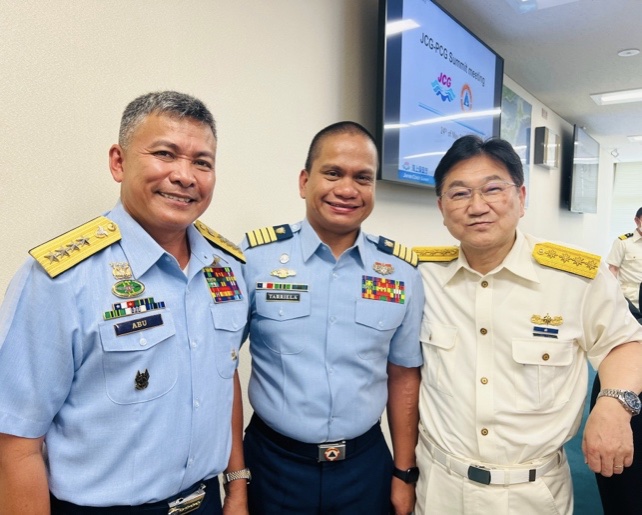
First-ever JCG-PCG High Level Meeti
ng held in JCG Headquarters,
Tokyo, Japan
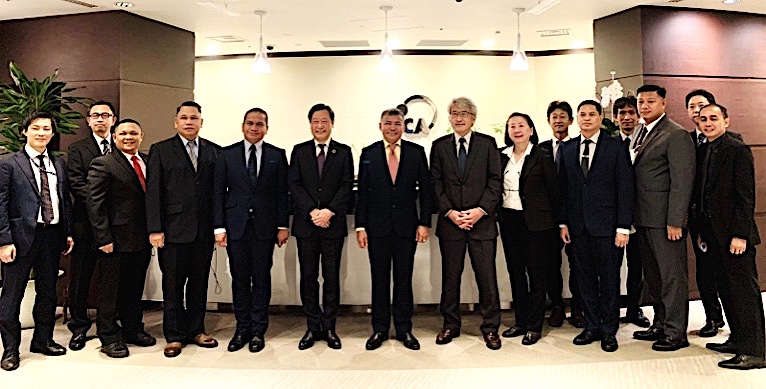
The Commandant, CG Admiral Artemio Abu and his o
fficial party visiting the JICA National
Headquarters
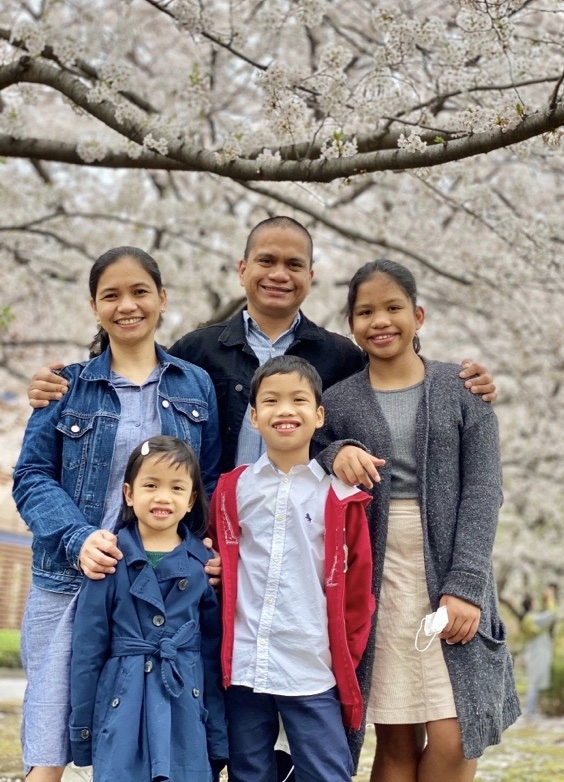
Our last year in Tokyo, Japan (2021, Spring)
What are some of your fondest memories of your time spent at GRIPS? And what do you miss about Japan?
I miss hanging out with other students that came from different countries. Through interaction and friendship, you will be able to know their culture and learn a lot from them. I also miss my life in Japan with my family. My children always ask me when we will return to Tokyo because they miss living in Japan for almost three years especially the cherry blossom during spring.
If you could give one piece of advice to anyone considering studying at GRIPS, what would it be?
Never hesitate to apply to GRIPS. And if you would be lucky enough to be accepted, make sure to enjoy your stay in Japan and make use of the unique opportunity to establish a network of friends from different continents.





